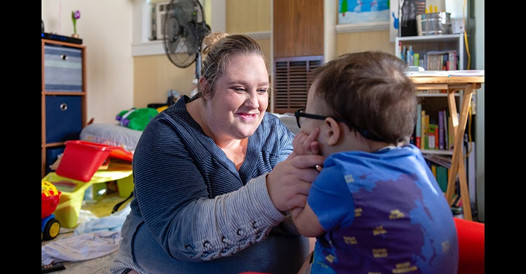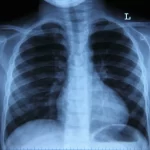Defective Medical Device Attorneys
At Serling & Abramson, P.C., we monitor recalls of defective medical devices and prescription drugs that have caused cancer, personal injury, and other severe complications. If you or a loved one have suffered complications related to any of these recalled products, please reach out to us. We will promptly evaluate your case at no cost to you to determine your eligibility for financial compensation.
Bayer Essure Device Recall
Bayer announced that they would stop selling and distributing the Essure device in the United States after December 31, 2018, due to declining sales of the product. This decline in sales is attributed in part to the FDA’s decision to place a black box warning on the permanent implant in 2016, stating that some side effects may be serious and require surgery. In April of 2018, Bayer implemented the FDA’s restriction on sales and distribution of Essure. This restriction required that healthcare providers supply an exhaustive checklist of risks to ensure women were fully informed of the side effects associated with the device. Bayer announced the end of all US sales of Essure by December 2018. By the end of 2019, any unused Essure devices were to have been returned to Bayer by healthcare facilities. In 2020, Bayer announced they would pay out $1.6 billion in an attempt to end Essure litigation in the US.
What is Essure?
Essure is a permanently implanted, non-surgical birth control device for women (female sterilization). In the implant procedure, a health care provider inserts flexible coils through the vagina and cervix and into the fallopian tubes – the tubes that carry the eggs from the ovaries to the uterus. Over about three months, tissue gradually forms around the inserts. This build-up of tissue creates a barrier that prevents sperm from reaching the eggs, thus preventing conception. Essure is considered a permanent form of birth control and therefore was not intended to be removed. The FDA advises that any women who are still using Essure for their birth control needs can and should continue to use the device and communicate with their healthcare providers about any healthcare complications they may experience.
Over the past several years, the FDA has been examining the growing number of adverse events associated with the use of Essure. Bayer has also been mandated to continue postmarket studies of Essure since 2019. Complications associated with the implant have ranged from mild, temporary symptoms of pain or discomfort to chronic, persistent symptoms. Reported adverse events include persistent headache or pain, perforation of the uterus and/or fallopian tubes, intra-abdominal or pelvic device migration, abnormal or irregular bleeding, hair loss, depression, metal allergy or hypersensitivity reactions, and autoimmune disorders.
Despite its intended use as a permanent implant, some women have had surgical procedures to remove the birth control device from their bodies after reporting chronic adverse side effects. In addition, Essure failure, and, in some cases, incomplete patient follow-up, have also resulted in unintended pregnancies. Ectopic pregnancy, a life-threatening condition, has also been reported in association with the device. Essure complications also include an increased risk for uterine and other cancers. While the device is no longer on the market, medical familiarity with it will continue to wane, making it critical that any women who’ve used Essure and experienced adverse effects communicate with their doctors. Around 1 in 3 women who have had the device surgically removed still experience troubling symptoms.
Hernia Mesh Complications
What is a Hernia Mesh and What Does it Do?
An abdominal hernia occurs when the intestines bulge through a weak spot in the abdominal wall. Often, surgeons use a loosely woven sheet, which is used as either a permanent or temporary support for organs and other tissues during surgery. This mesh can be created from both inorganic and biological materials and can be used in a variety of surgeries. Hernia mesh can also cause serious side effects when it malfunctions.
Hernia mesh complications may include:
- Infections
- Wound reopening
- Chronic pain, leading to nerve damage or chronic inflammation
- Bowel obstruction
- Adhesion to organs or tissues
- Migration to other parts of the body
- Fluid buildup
- Hernia recurrence
Some adverse effects of hernia mesh may go for years unnoticed, delayed, or continually recurring years after the original surgery. As the pain gradually increases without intervention, the risk for further damage becomes more pronounced. Some hernia mesh complications can be so severe that they require not just one, but several revision surgeries.
As of September 2021, over 20,600 hernia mesh revision surgery lawsuits have been filed. Many more cases are pending across the US. Due to the Covid-19 pandemic bellwether trials have been continually postponed. Only one trial has been settled in a defense win, to date. The next hernia class action trial will occur in January 2022, and we hope that many postponed cases will go to trial next year. It is due time for compensation and relief to come to so many individuals who have suffered.
If you or a loved one are suffering from a hernia surgical mesh revision surgery complication, please contact us. You may be entitled to compensation.
View this video from our lawyers to learn more.
Medical Drugs
Drug Ducosate
Anderson Moreno, a baby infected with B Cepacia from tainted Ducosate. While Anderson is making slow and hopeful progress, his parents struggle to make sure he gets every opportunity to lead as normal a life as possible. We along with Morgan and Morgan and The Weinberg Law firm are representing the family.
Watch the story of Anderson Moreno.

















